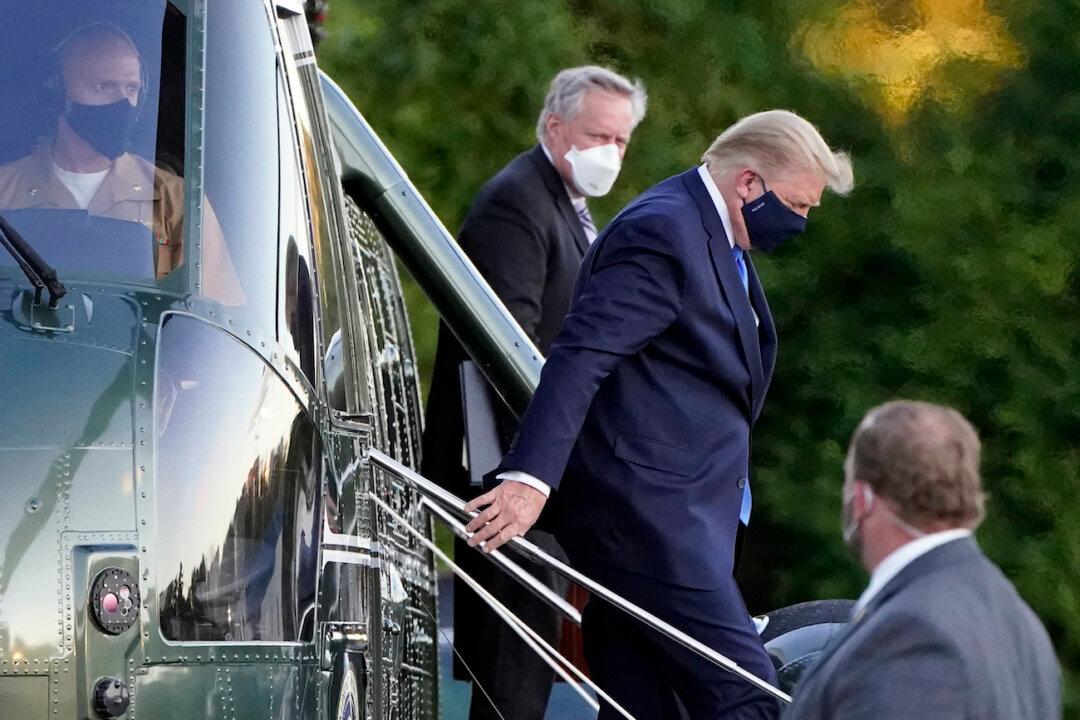President Donald Trump has directed White House chief of staff Mark Meadows to begin the process of declassifying more documents tied to the Obama administration’s investigation and spying on the Trump 2016 presidential campaign.
“He’s already tasked me with getting some declassification rolling, in a follow up to some of the requests that Devin Nunes and others have made,” Meadows told “Fox and Friends” on Oct. 5, referring to House Intelligence Committee ranking member Devin Nunes (R-Calif.)





